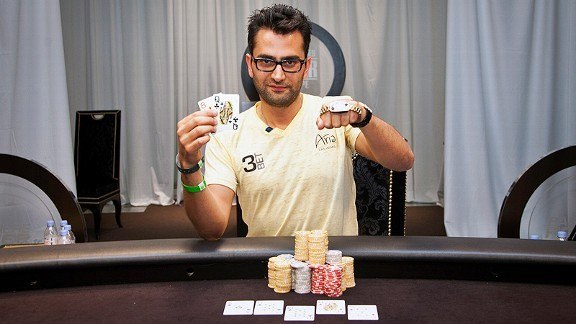New Nevada Gambling Bill Could End Poker Staking Agreements (Or Not)
Posted on: January 26, 2015, 02:26h.
Last updated on: January 26, 2015, 02:26h.

The World Series of Poker gets a lot of publicity for its big money tournaments and prizes worth millions of dollars.
Most poker fans, however, know that a lot of those tournament scores are just official numbers, and don’t really show what players make.
That’s because, particularly in high roller events, players rarely pay their entire buy-in; instead, backers put up at least some of the money in exchange for a portion of the winnings.
That way, players (and others in the community) can manage their risk rather than, say, hope they don’t lose $1 million on a single bad beat at the Big One for One Drop.
But now some players are concerned that a new bill might make it illegal for backers to put up part or all of a buy-in for a player. Senate Bill 40 (SB 40) has been pre-filed in the Nevada legislature on behalf of the Nevada Gaming Control Board, and ostensibly has been designed to help combat money laundering in sports betting.
In general, the bill makes it illegal for individuals to accept or facilitate bets on “the result of any race, sporting event or future contingent event” without proper licensing.
It would also be illegal to transfer or deliver payments (either in cash or by other means) based on the outcome of such a bet.
If they committed that crime, an individual could be found guilty of a category B felony. That could mean as much as six years in jail and a fine of up to $5,000.
Bill Might Inadvertently Stop Staking Agreements
It seems that these harsh penalties are designed to dissuade people from laundering money through large sports bets.
Someone looking to do so could potentially place large bets on both sides of a football game, for instance, confident in the knowledge that they will only lose a small amount by winning one bet and losing the other, and withdrawing “clean” money in the process.
But others fear that the law is written so broadly that it could impact the poker world as well.
A staking agreement would seem to fit into the defined crimes of the legislation: it involves one person betting money provided by another, and the backer potentially earning proceeds as a result of the player’s “wager,” which would be their tournament entry.
If such agreements were made illegal, the WSOP might see a decline in entries, particularly in high buy-in tournaments where most players simply can’t afford to risk the amount it costs to play.
Affiliate Marketing Agreements Could Also Fall Under New Rules
Others have pointed out that the bill could be interpreted as outlawing affiliate marketing agreements in online poker as well.
This could open up a completely new set of questions, including whether such agreements would be illegal entirely, or only between affiliates and unlicensed poker sites.
Still, it doesn’t seem as though players should be panicking quite yet.
The possibility of staking being banned comes from the very vague wording of SB 40, and since the bill hasn’t yet been official filed (let alone been voted on by a committee or the entire State Senate), there’s still plenty of time to clarify the language.
Many groups will be able to find ways to have input into the bill, and it’s far from clear that SB 40 will ever become a law at all.
No comments yet